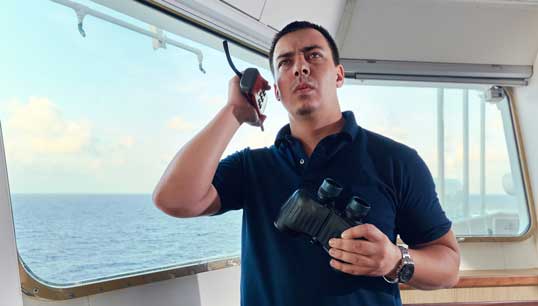Union celebrates successful Charter for jobs campaign as National Minimum Wage amendments pass House of Lords
29 June 2020

Nautilus has achieved one of the most important points on its long-running Charter for Jobs campaign – to apply the National Minimum Wage to all vessels engaged in UK waters.
A draft order to amend the National Minimum Wage (Offshore Employment) Order 1999 passed the House of Lords on June 25 – International Day of the Seafarer. Having already passed the House of Commons, the order will now be adopted into UK law.
The order will extend the provisions of the National Minimum Wage Act 1998 to seafarers on any vessel working in UK territorial waters or in connection with offshore activities in the UK sector of the continental shelf.
It will apply to fishers in UK territorial waters and to dredgers and the windfarm sector, irrespective of where the vessels are registered or whether the workers themselves normally live or work in the UK.
The amendment is expected to help maximise the employment of British seafarers in the UK, especially in coastal shipping; passenger and freight ferry services; offshore windfarms; offshore oil and gas exploration and decommissioning.
In practical terms it secures an enforceable legal baseline for seafarers' pay on domestic offshore supply and cargo routes between UK ports, including the UK continental shelf.
Nautilus general secretary Mark Dickinson said: 'In the absence of effective social dialogue on the issue of social dumping in UK waters this is a major triumph for our lobbying of government and should be welcomed by the industry, as it helps establish a level playing field by putting a floor in the wages of all seafarers in UK waters, including one port voyages on the UK continental shelf. It will thus help protect UK seafarer jobs.'
Conservative Lord Viscount Younger of Leckie, who introduced the draft order, said: 'This is a small but significant step toward raising employment standards for seafarers working domestically in the UK. We are an island nation, yet we are often sea-blind to the seafarers who do so much to support our economy.'
Nautilus has campaigned for the best part of 20 years for minimum conditions to apply to all seafarers in UK waters. This included repeated attempts to secure the support of the Chamber of Shipping for a solution to the problem of the exploitation of foreign seafarers and the undermining of UK seafarers' jobs.
The amendment is expected to bring a relatively minor cost to industry when compared with other recent regulatory measures such as the sulphur emission measures, Viscount Leckie said in his introduction. The expected cost to industry is approximately £3.2 million a year.
Several speakers including Lord Rosser questioned the £3.2m figure, noting that there was no robust data provided on how many employees who would now be covered by the order are not already being paid in accordance with the UK minimum wage, and that there is 'a lack of concurrence amongst sources which are available'.
Baroness Randerson, the Liberal Democrat Lords Spokesperson (Transport), noted frustration on the Government's part, which did not have the full co-operation of all ship owners in the drafting of the amendment. 'Ship owners have said that certain services may "no longer be viable" but they have not been able to provide any examples,' she said. 'The minimum wage did not lead to the predicted job losses when it was introduced. We can probably assume that the industry will be more robust than those ship owners predict.'
Ferries operating between Great Britain and Northern Ireland, the Scottish ferries and other domestic services are covered by the changes. However, ferries operating to the rest of Europe are on international voyages and, unless flagged with the UK, are outside its jurisdiction.
'We are aware that concern remains that ferry routes are largely not covered by the amendments and that some ferry services may be using low-cost employment models,' Viscount Leckie said.
The amendment will not apply to self-employed workers and micro-businesses.
The Department for Business, Energy & Industrial Strategy (BEIS) is responsible for funding HMRC enforcement of the minimum wage. The 2021 overall budget is £27.5 million, of which £26.4 million is allocated to HMRC enforcement. HMRC takes a risk-based approach to enforcement, which means it can flex its resources to tackle an emerging threat or issue, including for seafarers working in the shipping industry.
Tags
More articles
Mark Dickinson appointed commissioner to Maritime Skills Commission
Nautilus general secretary Mark Dickinson has been appointed a commissioner on the Maritime Skills Commission (MSC) which is tasked with expanding the industry's pool of maritime talent.
Points-based immigration system could boost British seafarer employment
Nautilus welcomes UK prime minister's commitment to 'global keyworkers' in crew change crisis
Nautilus has welcomed a commitment from UK prime minister Boris Johnson to address the plight of seafarers stranded by the Covid-19 crew change crisis.
Nautilus agrees extended sea time for cadets caught out by Covid pandemic
Nautilus has reached agreement with the UK Maritime and Coastguard Agency (MCA) and Merchant Navy Training Board (MNTB) to allow consecutive phasing of cadet sea time in response to training disruptions wrought by the Covid-19 pandemic.
